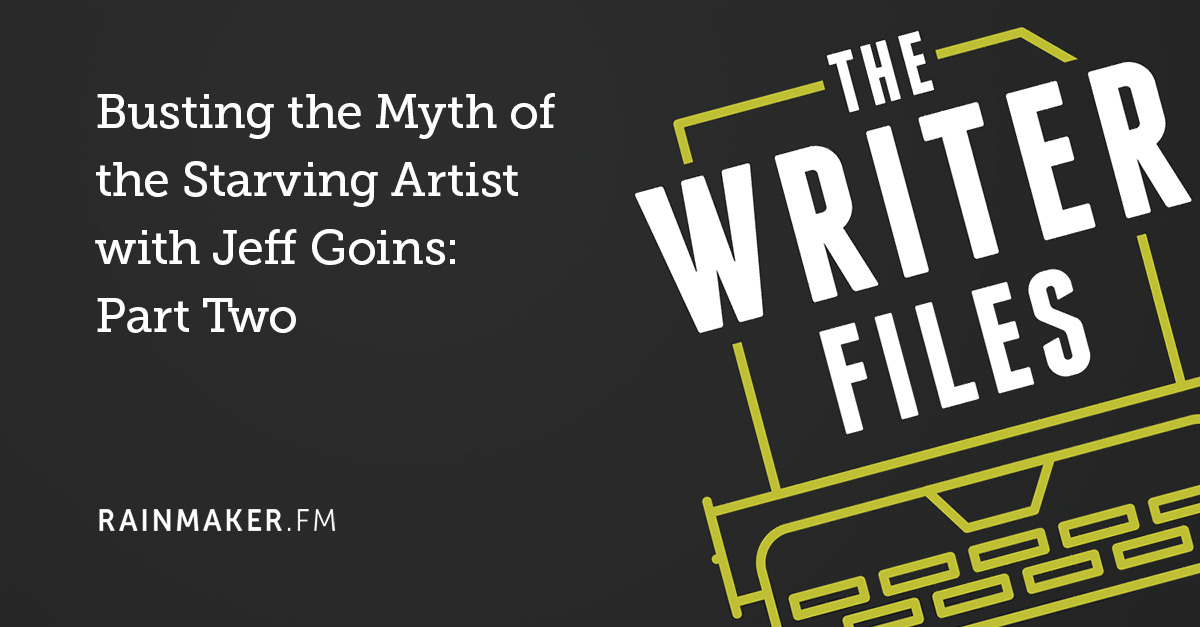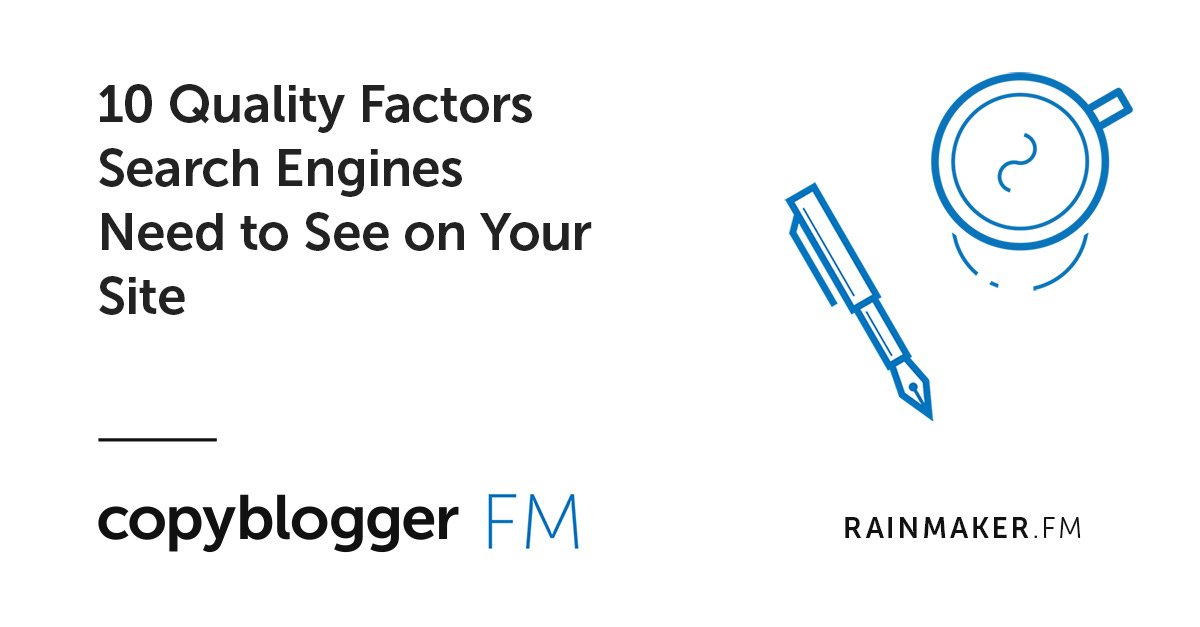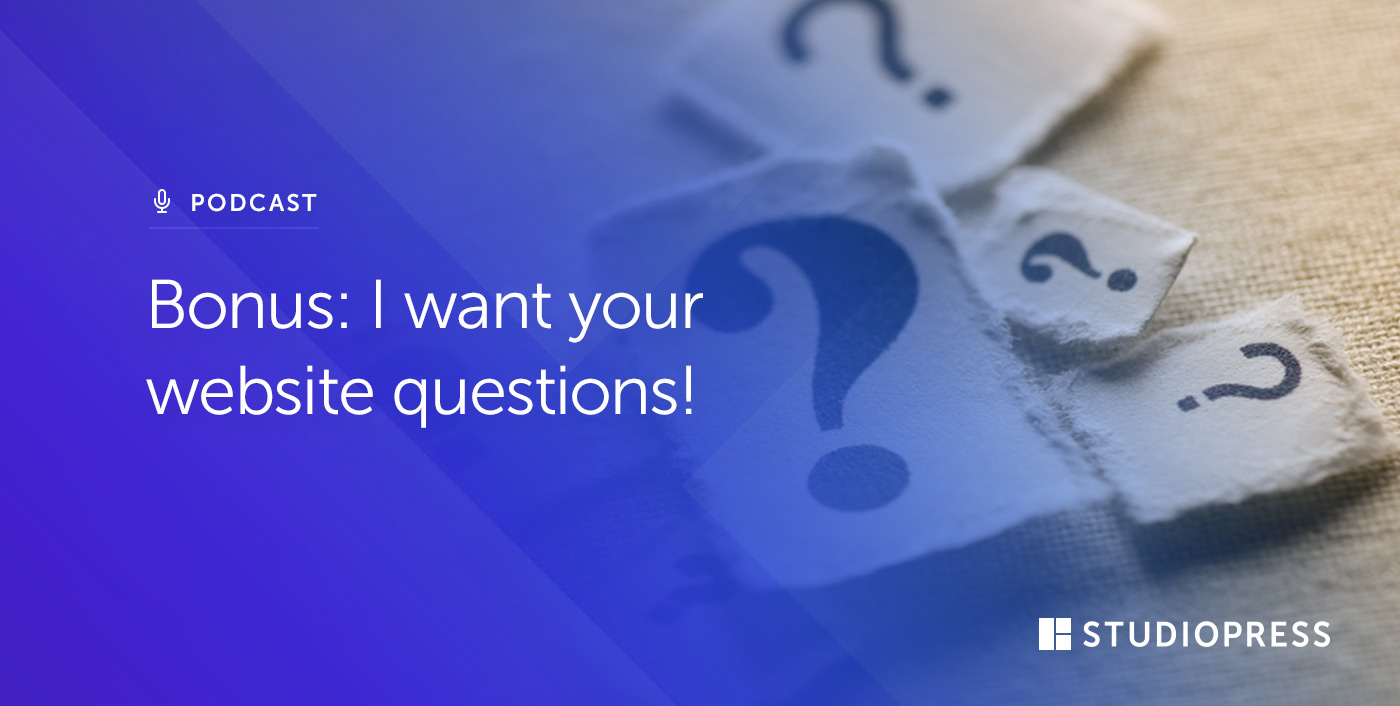You had trouble sleeping again last night.
Up until the time you got into bed, you were looking at their Twitter feed, their Facebook page, and their website.
It’s your competitor.
You’re completely preoccupied with everything they do … and for a seemingly good reason. Their customer base seems to keep growing and they keep expanding their offerings, while you’re just trying to keep your head above water.
You constantly ask yourself:
“What will it take for my business to be viewed like theirs?”
While it’s natural for that question to arise in your mind, it may stifle your progress if you’re thinking in terms of duplicating their marketing efforts.
Prospects don’t want to see a carbon copy of another business and you don’t want to obsess about competitors anymore, so I’m going to show you how you can immediately become energized about and sharply focused on your own marketing ideas instead.
The heavy lifting content marketing can do for you
Brian’s recent post about how to build trust and Sonia’s post about how to stop being boring are two sides of the same content marketing strategy coin.
The benefits of creating not boring content are essentially everything you wish to achieve with content marketing.
It allows you to build an audience of interested prospects who trust you to solve their problems.
They trust you because they know your personality. They know your sense of humor. They know your favorite analogies. Your word-choice preferences. What irritates you. What warms your heart.
They want to hear from you. You’re their go-to resource.
So, if a prospect chooses a competitor over your business, it’s likely because your competitor has revealed themselves to their audience in ways that you haven’t … yet.
What’s editing got to do with it?
The example we’re going to look at today comes from the service business world — specifically an editor who offers his services to clients — but you’ll be able to see how these ideas can be applied to any niche or product.
There can be a difference between what you think your prospect needs to hear and what your prospect actually needs to hear.
In order to explain why he is qualified to edit a prospect’s writing, an editor might write on his website that:
- He pays fierce attention to detail.
- He is a “grammar nerd,” with extensive training and experience.
- He loves working with writers.
And in order to explain the benefits that prospect will receive from hiring him, the editor might state:
- Your draft will be flawless when it’s returned to you.
- It will be returned to you on time.
- You’ll get feedback about common mistakes you make.
All of those statements sound informative and professional, but here’s a secret about writers:
Every writer thinks their final draft is perfect. Most only have someone else edit and proofread their work for good measure.
If a writer is your prospect, you have to do something else to win her business.
No one cares about how good you are until after they know they can trust you
Those bullet points above don’t impress the prospect, and even if they did, the majority of other editors offering their services on the web make the exact same claims.
When selecting an editor, the prospect is actually concerned about the intimate act of another person — a stranger — reviewing and revising her writing.
She wants to know if she can trust the editor with her draft and if she’d like working with him. She’s less concerned about whether or not the editor knows the difference between “compliment” and “complement.”
How do you get someone to trust you?
Even though you may superficially provide the same product or service as your competitor, you choose to attract the exact right prospects for your business.
When you decide to not be boring, you step into your power as a creative content marketer — an artist who reveals himself to his audience and builds trust.
Like your favorite painter or musician.
This is the fun part.
When you create a variety of content that helps your prospects with the issues they struggle with, the most important thing to remember is:
Information does not equal content.
If someone could find what you create on Wikipedia or your competitor’s blog, your content will not be the type that builds trust over time.
The type that builds trust produces a valuable, entertaining experience for your audience member and has a clear, unique payoff.
Your content is an opportunity for you to take knowledge you’ve acquired and supercharge it with your perspective. Then you’ll share your creations to reach the people who are attracted to your communication style.
The complete package
Now, you do have to provide an outstanding product or service once a prospect accepts your offer.
That’s why an editor should know the difference between “compliment” and “complement.”
All that trust you’ve built won’t help if you don’t fulfill your promise.
But think about the powerhouse force that is in motion when you’ve built enough trust to make a sale — and then meet (or even exceed) your customer’s expectations?
You’ve become the only reasonable choice for that person and made the competition irrelevant.
And when you nurture your existing customer base, you’ll get testimonials to display on your website that further demonstrate your trustworthiness. Those happy customers will also recommend you by word of mouth if someone they know needs a product or service like yours.
It all starts with smart content.
Consider that question from earlier again:
“What will it take for my business to be viewed like theirs?”
If your competitor’s business seems less interesting now … good. You’ll have a lot more free time to get to work.
Image source: Gwen Weustink via Unsplash.



![[08] 10 Goals that Make Content Marketing Meaningful](../../rainmaker.fm/wp-content/uploads/2017/07/sites-008.jpg)


Thank you for this great post! I couldn’t agree with you more. I have found that trust and a personable style help to create a relationship with my clients. And that adds up to a win-win experience for both sides.
Trust is such a hard thing to build, but as long as you commit to being transparent, you can construct it over time.
Transparency might be a whole other topic, Renee. 😉
Luckily, you can be honest and keep your word without overexposing yourself for the sake of transparency.
Examples from the world of editing are always welcome.
“Your content is an opportunity for you to take knowledge you’ve acquired and supercharge it with your perspective. Then you’ll share your creations to reach the people who are attracted to your communication style.”
Terrific advice, Stephanie. And yet, much easier said than done.
Years if not decades of socialization has taught us to be conformist. To shave off those unique edges of our personalities. (Like the years of my helping my mother grade high school English papers makes me want to take the red pencil to those last two lines marking them as fragments. 😀 )
And yet, sometimes it’s our brokenness that gives humanity to our written voice and authenticity to our shared experiences.
It’s a bit of an experiment to know when it becomes too much information. A dance between ourselves and our audience. Lord knows, I mess up those steps often enough. I’m just grateful that the band continues to play.
Yes, there are always more opportunities to dance, Lori.
Well put. Just started new website providing an online searchable database of vegan products in Denmark, which was totally missing here.
Nice resource! I’d use that if I ever visit Denmark.
Thanks Stefanie!
Very well said, Stefanie. Trust is a big selling point when customers make the final decision. But from the sales rep’s end, he/she has to nurture the connection with the client from point of prospecting up to closing the deal. This is where a trusting relationship comes to place.
And content has a lot to do with the trust you build with your customers. Content is key. One of the ways to earn customer trust is to deliver useful content that brings real value to them.
My starting point with anything I write is to be as personable and transparent as possible. You get only a few seconds to convince a new reader that its worth hanging around your content. Be as open and engaging as you can if you want a long-term engagement with your readers.
Giving the consumer confidence in what you’re marketing is the key but doing that in a limited amount of words or time is always difficult. I’ll take on board some of your tips and fingers crossed! Thanks for posting.
I couldn’t agree more! If there’s one thing I’ve learned from 20+ years in sales, it’s that gaining trust is paramount. If people don’t trust you, they won’t buy from you.